“Imagine finding out about a severe health crisis in your late twenties, when you’re potentially just about to solidify your career path, establish financial stability, plan your family, or get a true understanding of what your priorities are in life. Having cancer at this stage in your life comes with its own unique set of challenges. Therefore, I decided to share the challenges I was experiencing and how my friends, family, and colleagues supported me through them.” –Janice Armbrust
In August of 2021, in the midst of the Covid-19 pandemic, Janice Armbrust was only 29 and had only been living in the U.S. for two and a half years when she received the devastating diagnosis of GBM (the most aggressive form of brain cancer). She acknowledged, “I was dealing with a whole lot of challenges at that age which definitely taught me a lot about resilience as well as the importance of good people in your life.”
Janice bravely decided to share her challenges and how the most important people in her life supported her through them in her book, A Cancer Warrior’s Perspective — A practical Guide for Loved Ones to Support Young Adults Fighting Cancer.
Welcome, Janice. As a fellow survivor, I’m truly inspired by you (as I’m certain many others are as well). Congratulations again on your book! Can you give our readers a quick summary of what it’s about?
The purpose of my book is to be a resource for supporters (friends, families, colleagues etc.) of young adults with cancer–and spark hope and resilience among them as well as fellow cancer patients. My book follows me through the different stages of my cancer journey–from the day my tumor was first discovered up until today. Each chapter touches on a different aspect of my life with cancer. At the end of each chapter, I give a few suggestions regarding how friends, family, colleagues and other acquaintances can support a young adult with cancer throughout the journey.
Can you tell us what inspired you to document and share your story?
Yes–in fact, there are three reasons why I decided to write this book.
First, when I went through my diagnosis and treatment, I felt that there weren’t enough resources speaking to me as a young cancer patient. So, I wanted to share my story as a resource.
Second, when I started talking about my experience with others, I often was asked “My friend just got diagnosed with cancer… What can I do to help them?” I felt that the people in my life collectively figured out how to make me feel very supported. And I also had lessons to share of what not to do. I wanted to share all of these tips and tricks with others.
Third, I am generally a quite positive and optimistic person. I figured that sharing my story with a positive outlook could spark hope among fellow cancer patients as well as their supporters.
What was the biggest challenge you had to overcome?
Dealing with my ‘worry list’–the overwhelming list of questions that a 29-year-old should not have to be asking herself. From “Why do I have cancer as someone who is young, fit, and healthy?” to “Should I still contribute to a 401k?” From “What do I need to prepare before I die?” to “Will I be able to go back to work?” From “How do I need to adjust my goals to this new normal?” All the way to “Will I ever feel sexy again now that my body has failed me and I have a weird battery attached to me 24/7?”
I kept struggling with these questions way beyond treatment and the wisdom of therapists, support groups, and doctors only got me so far. It took the collective support of all the amazing people in my life and a lot of courage and resilience to overcome these thoughts.
What are some additional issues unique to the young adult cancer population?
That’s a great question. I think many of the items on the worry list I just mentioned are quite unique to the young adult cancer population. I can give you some examples…
My goals: I’ve always had a lot of goals. For instance, I’ve always wanted to have adventures, travel around the world, and hike the PCT from Mexico to Canada. None of this is possible now the way I originally envisioned. I am lucky that I still can travel and hike. But I won’t be able to do it in the big way I had planned. I had to revisit many goals and transform them into something that is possible for me with the amount of medical devices and medication that I need to carry with me. I think these challenges around longer term goals apply especially to the young adult population: Young kids probably have shorter term goals while older patients hopefully have already accomplished many of their life goals.
My career: I used to be a workaholic, fast tracking the career ladder in my consulting job. Cancer made me question and change the way I had been thinking about work my entire life. Young adults especially are still in the beginning of their career. Navigating career choices with cancer can be very difficult. Many GBM patients are unable to return to work at all after their cancer treatment–-that’s a scary prospect for young adults! I count myself very lucky that I can still do my job almost as if nothing happened. I did make several adjustments to the way I approach my career–I try to focus my work on what I find meaningful now and I try not work crazy hours. It’s tough to stick to my new principles sometimes but it’s necessary. And my employer is very supportive.
Money: I think this one is especially big for young adults who are responsible for their finances. Financial planning is complicated enough when you don’t have cancer…. I am yet to find a financial planner that specializes in planning for people with a deadly illness. Do you save for retirement? Do you spend it all while you still can? I think about healthcare, health care expenses, and health insurance way too often. It’s stressful.
Relationships: I think for young adults relationships can be more fluid compared to other age groups. You likely have established your circle of friends…But what if they don’t stick around through the cancer? Or what if your best friend and number one supporter suddenly has to move cities? And then of course there’s dating: some of the young adult patients I’m talking to are single and scared that no significant other will ever commit to them. I was scared of this too for a brief moment. Why would anyone want to be with me like this? I am wearing Optune and have to be bald for the rest of my life, wearing a medical device 24/7. I felt so insecure and was frankly a bit disgusted and disappointed with my body for developing cancer. Of course, my husband didn’t care, and instead of running decided to propose to me. He’s the best!
I think in general young adults probably have a larger support network than very old or very young patients. BUT I think the support quality might be lower because other young adults don’t know how to be supportive. That is why I wrote my book. To help them understand and enable them to support.
Side effects: Lately I’ve been thinking about all the medication I am continuously taking and if this will cause liver damage or such things down the line in 20 years or so. I’m assuming that the older cancer population is less worried about this, but I could be wrong. Either way, it is something that I think a lot about–as someone who is hoping to beat the odds for several decades.
Family planning: Last but not least, I think a really big challenge for young adults specifically is also around parenthood. I was never planning to have kids (they kinda scare me). But if I did, I would have needed a lot of extra consultation on that topic. I would have wanted my doctors to educate me on freezing eggs before chemo. I also know that my cancer is potentially genetic. That’s something to consider when planning a family. And my prognosis is quite poor… meaning if I did want kids, I probably wouldn’t get to see them grow up and instead my husband would have to expect to become a single parent eventually. I can’t imagine the pain of having to make family planning choices in the context of a cancer diagnosis. But that’s the reality for many young adults with cancer and I am inspired by them all.
What motivated you to persevere?
Probably a combination of 70% hunger for life, 20% love, and 10% stubbornness.
Hunger for life: I’ve always made it a point to live life to the fullest, but forgot this along the way of workaholism and everyday life. Cancer was a wakeup call and I needed to beat it to experience more of life–I still had (and have) so many adventures that I want to go on. I needed to stay resilient and focused on the the good things in life to get the most out of it!
Love: The people in my life are awesome and I owe them so much. I want to persevere for them and they help me to stay strong. Every hug, every text message, every silly gift card, every pair of fuzzy socks, every blanket…it all helped me to stay in the positive mindset I needed to get through the hard parts of my journey.
Stubbornness: I’ve always been goal-oriented. Giving up has never been an option. I worry, I cry, ‘I hate everything’ for a little bit sometimes. But then it is time to pick myself up (with the help of my loved ones) and focus on anything in my power to overcome the challenge ahead.
What message do you most hope readers will glean from your book?
Be kind – To each other and to yourselves. There is (almost) no wrong way of supporting your loved ones if you are considerate and kind and have their best interest at heart. Cancer sucks for everyone involved. But relationships and mindset are key protective factors in overcoming the challenges that come with a cancer diagnosis.
What did you learn during your journey?
So many things–related to my book I’d say the following: When you have cancer, there will always be ups and downs and a spectrum of emotions. No matter how positive and determined I want to be, there will always be some bad days. Maybe that’s simply life. But my loved ones will always be there–to pick me up during the downs and to celebrate the ups. And to hold me accountable to live my life to the fullest.
I also learned a lot about navigating health care in the US, about cancer treatment and trials, and about privilege and luck.
What else would you like readers to know?
Just like every person is unique, every cancer journey is unique. My journey, my diagnosis, my prognosis, my worries, as well as the suggestions I make for supporters at the end of each chapter, are just based on my own experience–they don’t have to apply to anyone else. But I hope they are still helpful.
Would you like to share where you’re currently being treated?
Yes, of course! I’m currently being treated at Pacific Neuroscience Institute. Shoutout to Dr. Akanksha Sharma, she’s the best!
Thank you so much for your time, Janice. Is there anything else you would like to share?
Thank you, Wendy! Maybe just that I am a 33-year-old outdoor-fanatic, married to my wonderful husband Jeff, living a slightly chaotic life with our very cuddly dog, Pemi. While I now live in California, by way of New York City, I grew up in rainy Northern Germany.
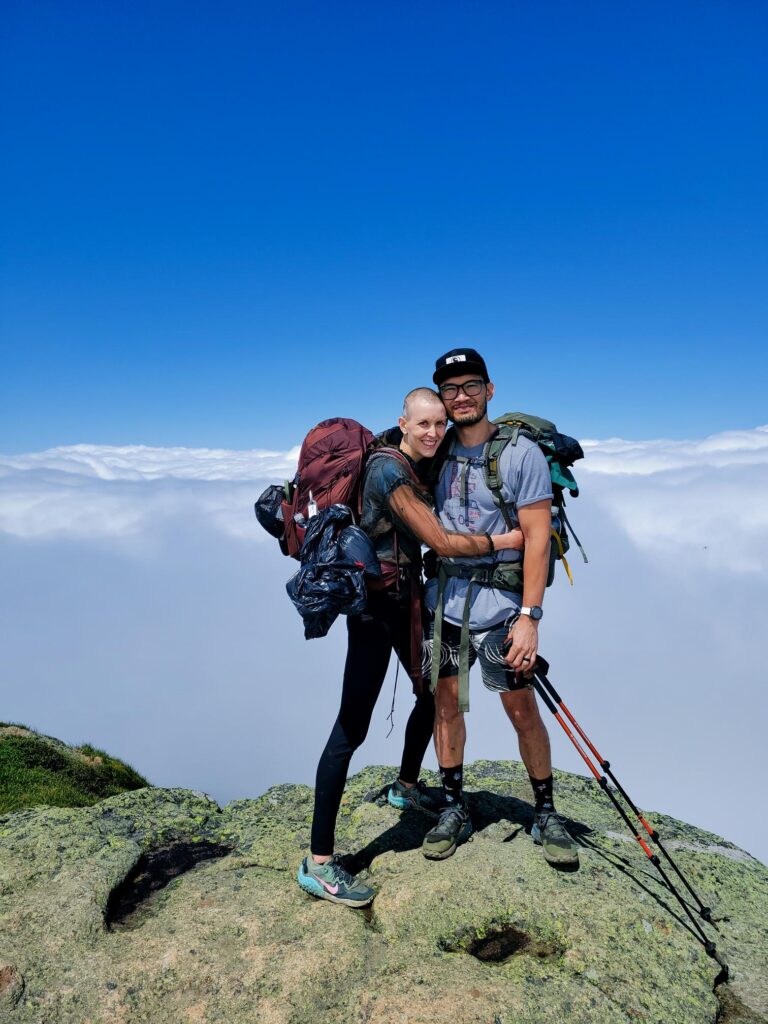
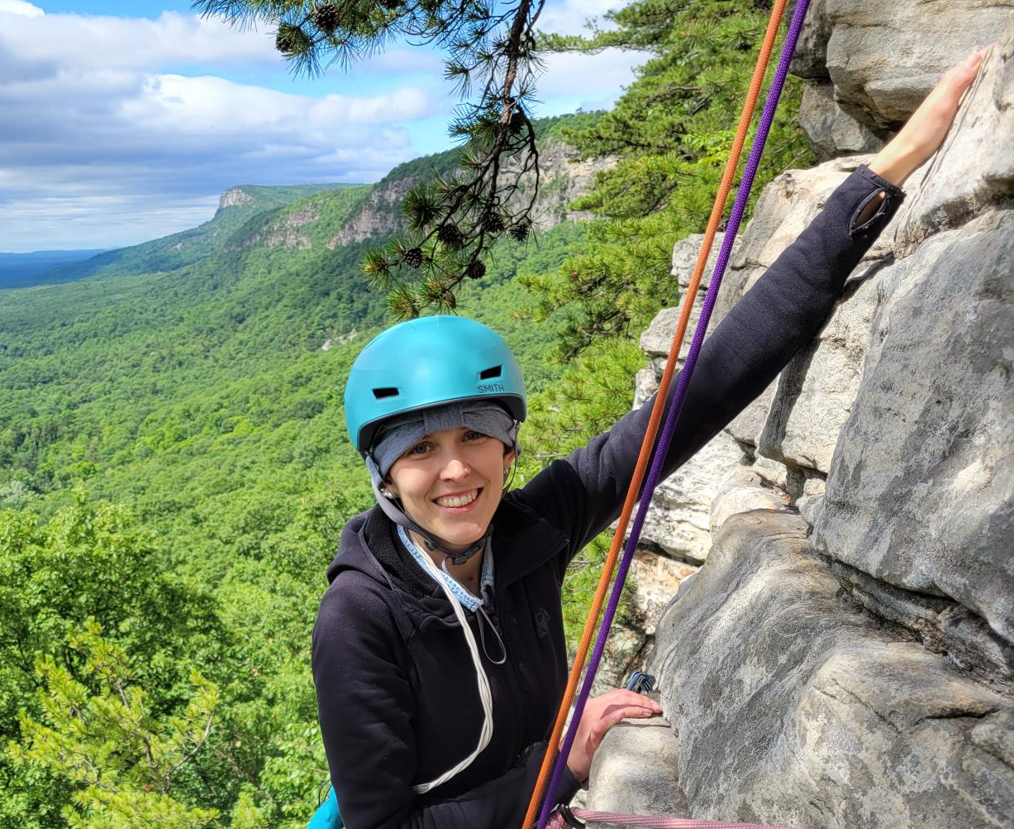
rock climb“
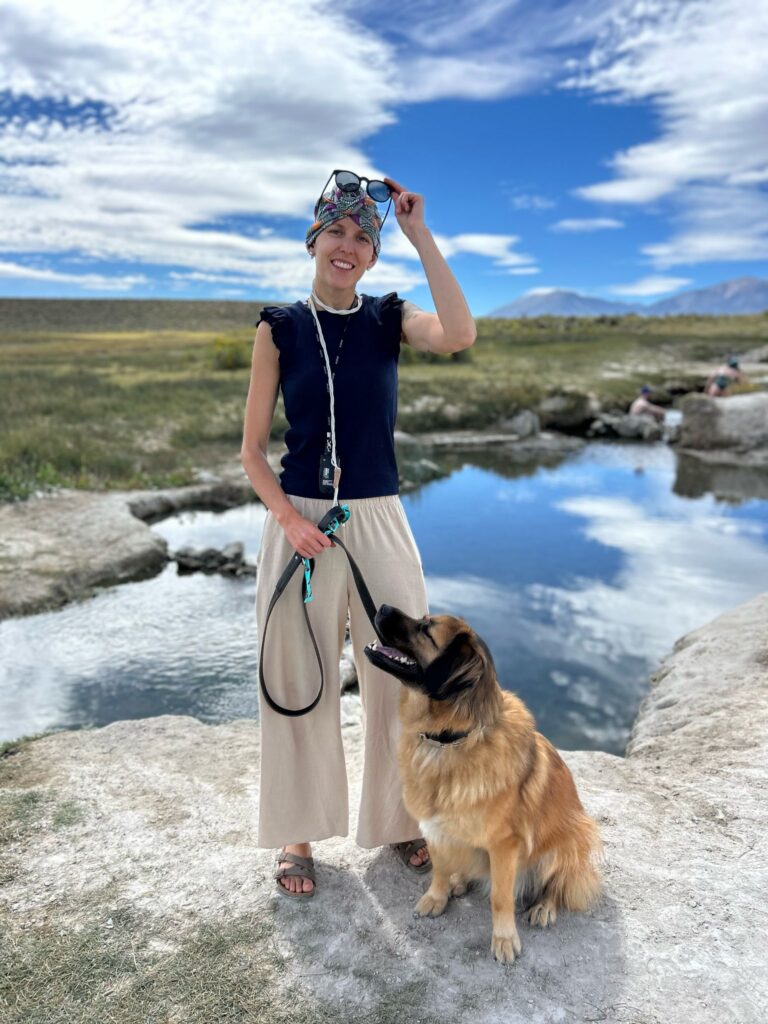
into the Sierras)”
What is the best way to contact you with questions?
email: [email protected]
Readers can also follow me on Instagram: @ a.cancer.warriors.perspective
Where can your book be found? Amazon and Barnes & Noble
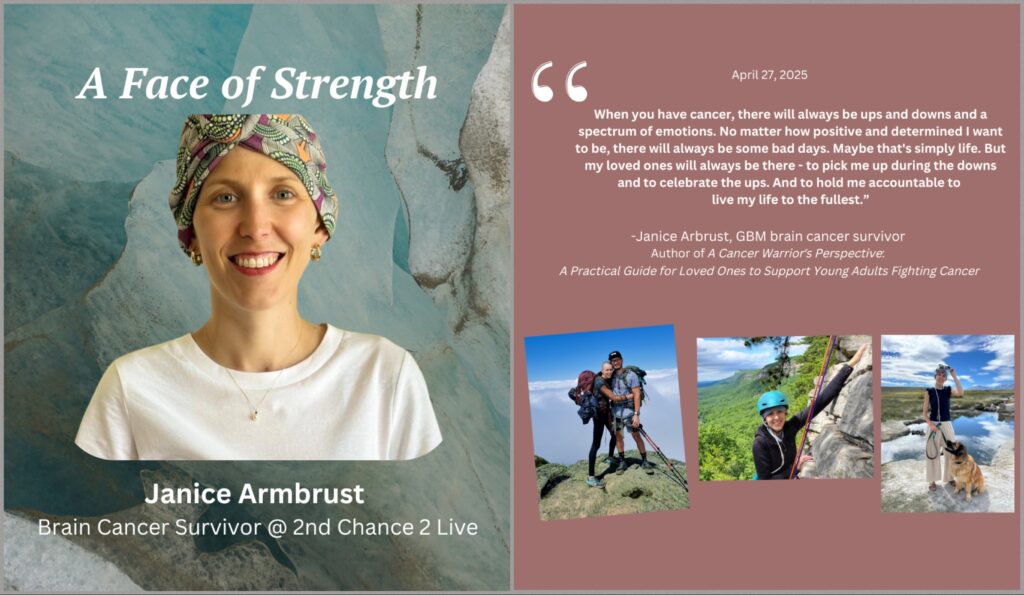
Note: The American Brain Tumor Association (ABTA) recognizes there is a gap in the services available to the Adolescent and Young Adult (AYA) population and is in the process of creating a unique and meaningful program to address this. The ABTA has already incorporated AYA specific topics into its webinar series and these can be viewed on the ABTA’s YouTube channel. Click HERE to view what has been recorded for the AYA population so far. An example is also below.

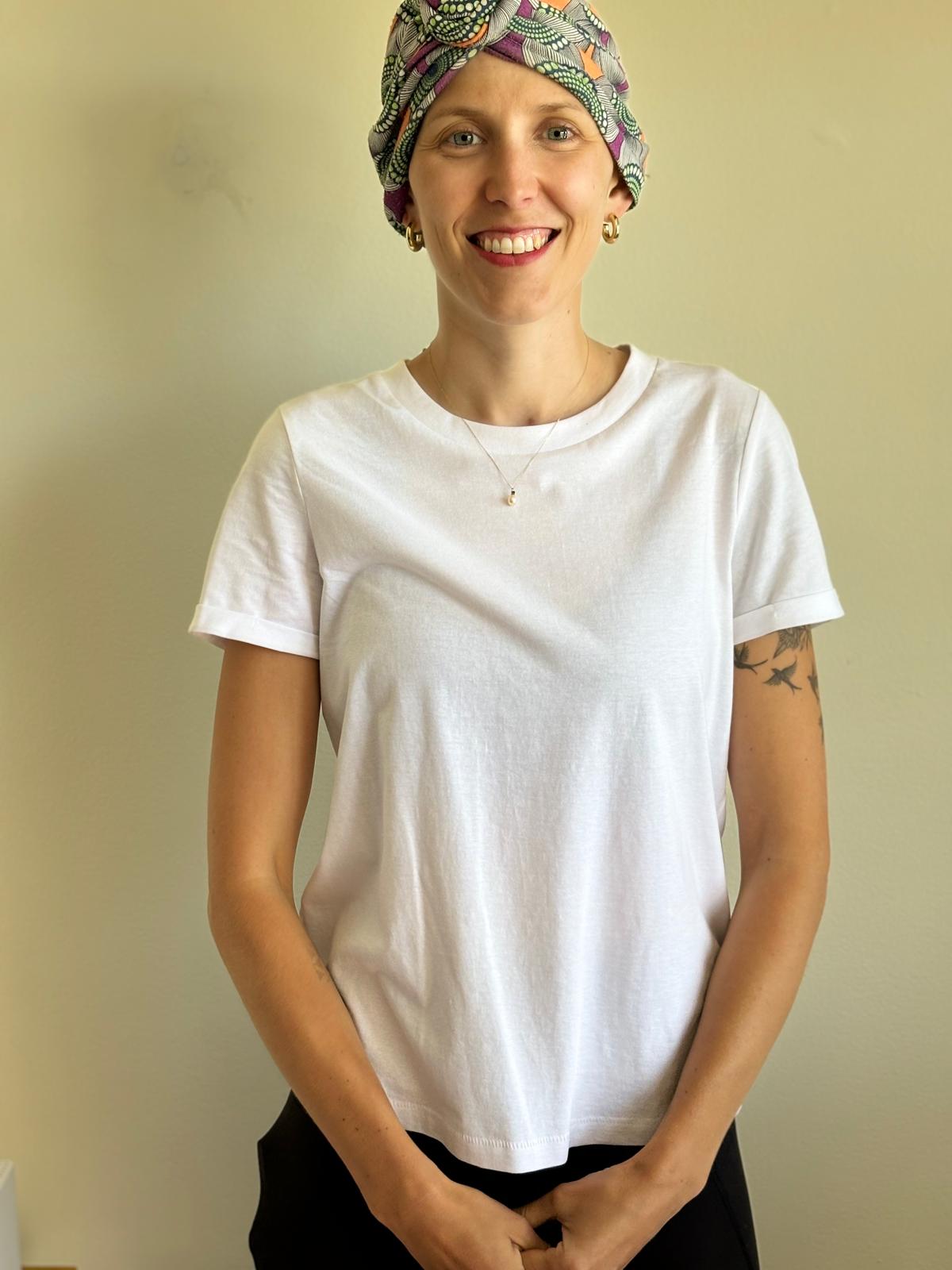
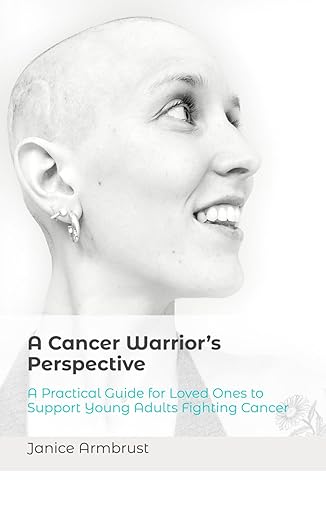
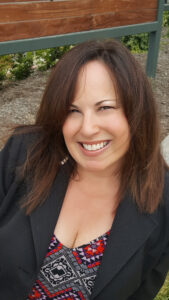 Hello. My name is Wendy and I’m a recovering workaholic. I'm also a brain tumor/cancer survivor.
The purpose of this blog is to share my experiences, memories, resources, and self-discoveries as I continue to transform from a workaholic into a more balanced person. I have read several books and stories about others who have had similar experiences
Hello. My name is Wendy and I’m a recovering workaholic. I'm also a brain tumor/cancer survivor.
The purpose of this blog is to share my experiences, memories, resources, and self-discoveries as I continue to transform from a workaholic into a more balanced person. I have read several books and stories about others who have had similar experiences 